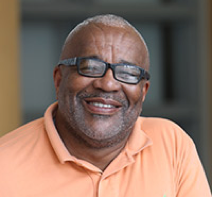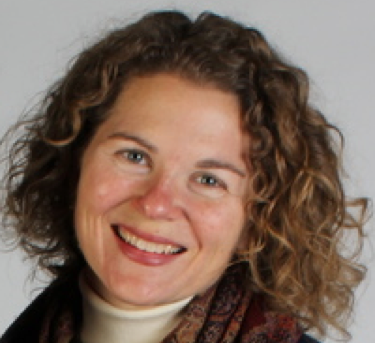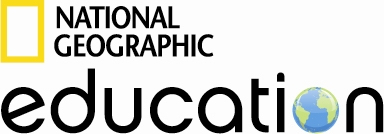Faculty and Staff Development Seminars
Facilitators: Lyle Q. Foster and Jennifer L. Wiley
For many students, and the faculty and staff who support them, our times can feel like the most polarizing, uncertain era to be alive. Unresolved or vaguely addressed issues of race and inequity around the globe are often exacerbated by media platforms promoting discussions that result in overly simplistic or unproductive expressions. Dialogue is a tool that can help our communities move together, heal and strengthen. Through dialogue, you, your colleagues and students can use the differences that threaten to fragment your campus to instead weave adaptable, strong communities. Constructive dialogue is a process that happens through learning how to actively listen and build intercultural awareness. These trainings are designed to construct meaningful, sustained dialogues on campus.
Objectives
After this training participants will be able to:
Practicalities
- All seminars can be tailored into ½ day and full-day formats.
- Target groups:
Potential Seminar Components
1. Intercultural Community Dialogue Development
These sessions are designed to build community within the faculty and staff while offering them tools for opening urgently needed intergroup dialogues in their courses or campus programs. Workshop participants will learn how to use CBE film excerpts, toolkits and other resources to lead students to the skills they need to begin difficult dialogues. Session facilitators will discuss how to support hesitant student groups to enter dialogue and create a safe, inclusive campus atmosphere. Facilitators will also share their pragmatic tips for working across multiple offices and departments on campus.
2. Intercultural Awareness Development
These sessions are designed to allow participants an opportunity to build their capacity to facilitate intercultural learning. Participants will become familiar with CBE resources and learn how to integrate content into their courses and programs. The session will also cover the theoretical and practical components of intercultural communication as well as offer opportunities for participants to practice their own skill building. Participants will learn how to guide others to understand how our own experiences and beliefs shape our worldview and our interactions with those around us.
3. Assessing and Evaluating Intercultural Learning
These sessions are designed to offer participants the tools, theory and strategy they need to understand when programming is working and how. During the session facilitators will support participants as they think critically about their own program components and goals. Discussions in this session will focus on identifying program stakeholders, how to collect feedback from them, and how to report program outcomes.
4. Facilitated Feature Film Viewing
The feature documentaries of the CBE Intercultural Film Trilogy focus on the interactions of youth from diverse cultural and social backgrounds in different situations. While each film stands on its own, they are designed to be integrated with campus events, cross-cultural trainings, social engagement projects and personal development programs. Our facilitators will work with you to organize dialogue and reflection sessions.
Customized Programming
Having worked in higher education for more than 15 years, both in the US and abroad, CBE and its affiliates understand that every institution has different needs and faces different challenges. We are happy to create a support program for your institution that fits your realities. Sessions could range from half day to periodic consulting across a semester or year. Contact us to let us know how we can work alongside you to create stronger communities on your campus.
Seminar Trainers
Facilitator Lyle Q. Foster
 Passionate about community, Lyle Foster is a university instructor and entrepreneur. A native of the state of Virginia, Lyle learned early in life to appreciate the value of an education. His mother Jacquelin was an educator and encouraged him to take advantage of any opportunities to learn.
Passionate about community, Lyle Foster is a university instructor and entrepreneur. A native of the state of Virginia, Lyle learned early in life to appreciate the value of an education. His mother Jacquelin was an educator and encouraged him to take advantage of any opportunities to learn.
Following this advice at 16, Lyle went to Macalester College in St. Paul, MN and later to Brown and Yale University for graduate school programs. It was at Macalester that Lyle was a part of the award winning Sounds of Blackness musical group. Currently Mr. Foster is a doctoral student in the Educational Leadership and Policy Analysis program at the University of Missouri. Early in his career, Lyle’s interest in community development led to working in non-profit organizations advocating for the needs of families and children in poverty. During this time Lyle implemented several award winning initiatives for homeless families. Lyle has served on numerous boards and committees and has founded several non-profit organizations.
An accredited diversity trainer, Lyle conducts workshops and trainings on issues related to diversity and inclusion. He is also a columnist in several local newspapers. On the university level, Lyle teaches undergraduates and graduates in areas including Sociology, Social Problems, Multicultural Education, Poverty, Diversity Training, Counseling and other areas. In 2015 Lyle implemented the Tough Talks initiative at Missouri State to provide conversation threads on issues of diversity and inclusion for students and staff. Community, empowerment and inclusion are some of the main drivers in Lyle’s life. Loving life, loving people and serving community are the mottos that he lives by.
Facilitator Jennifer L. Wiley
 As a Missouri native, Jennifer has learned the power of sincerity and curiosity—particularly at points where they intersect. Moments of curiosity have led Jennifer around the world and into the lives of people who have changed the way she views and experiences the world. Her current professional life developed along the interstitial spaces of projects of passion and necessity.
As a Missouri native, Jennifer has learned the power of sincerity and curiosity—particularly at points where they intersect. Moments of curiosity have led Jennifer around the world and into the lives of people who have changed the way she views and experiences the world. Her current professional life developed along the interstitial spaces of projects of passion and necessity.
Jennifer is now the managing partner at CoreCollaborative International—a woman-owned partnership of colleagues who met while working for the University of Virginia. She took up this role after ten years of work and research in international education in the US and abroad.
Her prior research has involved questions of how institutions know and understand the impact of intercultural experiences on youth who participate in their programs–with a particular emphasis on measures/instruments organizations use to evaluate impact. She is a certified administrator in a number of instruments which gauge intercultural competence, global perspectives, self and other awareness, and open mindedness.
Jennifer and her partners have found that skills involved in formal program evaluation, intercultural competence training, and intercultural curriculum development are often desired in diversity, multicultural, and international offices, but the jobs that must be done on a daily basis prevent many staff and faculty from developing those skills or using them on projects important projects. Her group brings skills and experience to bear in collaborative partnerships with institutions of higher education to design and implement those projects.
As a doctoral student, curiosity about what specific elements of transformative learning experiences and participant backgrounds combine to precipitate worldview change is the driving question of her dissertation at the University of Missouri. In the space between work and study, Jennifer enjoys spending time in her multi-generational, multi-specie, multi-century home in Springfield, Missouri.


